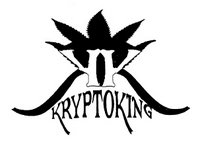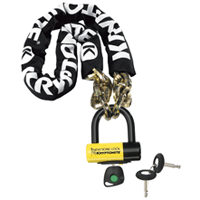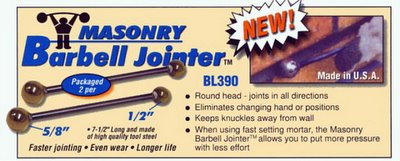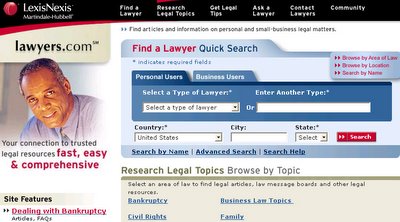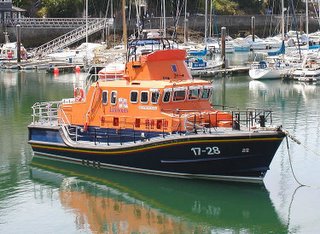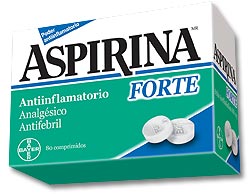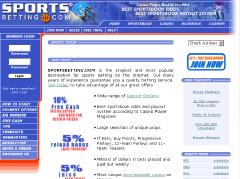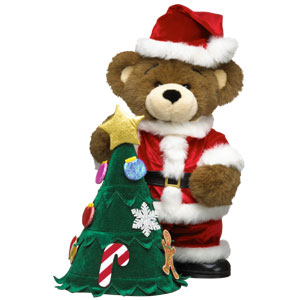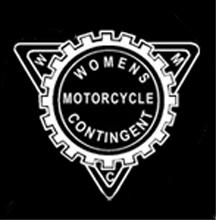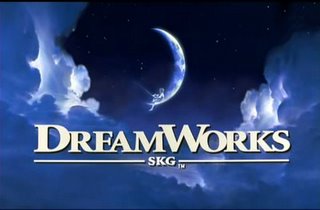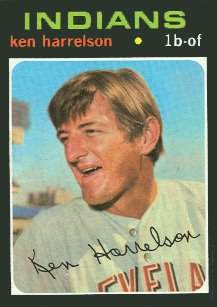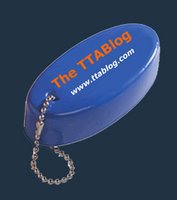TTABlog Quarterly Index: October - December 2005
Well, The TTABlog has made it through its first full calendar year. Here is the fourth quarter 2005 index. Links to the earlier quarterly indexes are found in the right hand column. Please report any broken links, errors, and the like to me for prompt correction. Happy New Year!

Section 2(a) - immoral or scandalous:
Section 2(a) - disparagement:
- DYKES ON BIKES" 2(a) Refusal Withdrawn by PTO
- TTAB Reverses Section 2(a) Disparagement Refusals of "SQUAW"
Section 2(a) - suggesting a false connection
Section 2(c) - name of living individual:
Section 2(d) - likelihood of confusion:
- Finding Golf Equipment and T-Shirts Related, TTAB Affirms "MAN O'WAR" 2(d) Refusal
- "KRYPTONITE" Opposition to "KRYPTOKING" Goes up in Smoke at the TTAB
- "ORION" for Golf Clubs and Fishing Rods Likely to Confuse, Says TTAB
- TTAB Designates "CAREFIRST" Decision as Citable No. 17
- "QUALITY" and "QUALITEE" For Auto Parts Not Confusingly Similar, Says TTAB
- Finding "ONFOLIO" and "CARTAGIO" Too Dissimilar, TTAB Grants 2(d) Summary Judgment
- TTAB Says "AMAVIO" and "AMEVIVE" Confusingly Similar for Pharmaceuticals
- TTAB Doesn't Buy PTO's "Designer Marks" Argument, Reverses 2(d) Refusal of "WEILL & Design" for Clothing
- TTAB Finds "RED BARON" For Gaming Devices, Computer Games Confusingly Similar
- Supplemental Registration Blocks "HALLOWEEN USA" Design Mark Under Section 2(d), Says TTAB
- TTABlunder? Board Finds "AdvaLife" Confusingly Similar to Famous "ADVIL" Mark
- "IQEYE3" and "eye Q" Design Marks Confusingly Similar, Says TTAB
- TTAB Finds Arrowhead Design Marks Confusingly Similar
- Dissimilarity of Marks, Evidentiary Mistakes Bring TTAB Dismissal of "SOY BUENO" Opposition
- "SLEEPYHEADS.COM" and "SLEEPY-HEAD HOUSE" Not Confusingly Similar, TTAB Concludes
- TTAB Makes "KRYPTONITE" Decision Its 10th Citable of 2005
- Irked TTAB Takes Counsel to Task In Dismissal of "CAREFIRST" Opposition

Section 2(e)(1) - mere descriptiveness:
- "POLITICAL COMPLIANCE SERVICES, INC." Descriptive but not Generic, Says TTAB
- TTAB Deems "BARBELL" Merely Descriptive of Barbell-Shaped Masonry Tools
- TTAB Alert: "MAYDAY" Merely Descriptive of Emergency Transceivers
- On Summary Judgment, TTAB Finds "TOF/TOF" Merely Descriptive of Mass Spectrometers
- Bayer's "ASPIRINA" Merely Descriptive of Analgesics, Says TTAB
- TTAB Reverses Mere Descriptiveness Refusal of "CRITICALWIRELESS" for Transceivers
- "THE GREATEST BAR" Double Entendre Argument Loses Appeal Before TTAB
- TTAB Squashes "GRAPE RANCH" 2(e)(1) Mere Descriptiveness Refusal
Section 2(e)(1) - deceptively misdescriptive:
Section 2(e)(4) - primarily merely a surname
- TTAB Affirms Surname Refusal of "MEARS" for Semiconductor Materials
- Divided TTAB Panel Finds "J.W. Foster" Not Merely a Surname
Dilution:
- TTAB Designates "CAREFIRST" Decision as Citable No. 17
- Irked TTAB Takes Counsel to Task In Dismissal of "CAREFIRST" Opposition
Fraud
Genericness:
- "POLITICAL COMPLIANCE SERVICES, INC." Descriptive but not Generic, Says TTAB
- TTAB Citable Decision: "LAWYERS.COM" Generic for an Online Legal Database
- TTAB Citable Decision Deems "SPORTSBETTING.COM" Generic
- TTAB Reverses Genericness Refusal of "BSS" for Balanced Salt Solutions
- TTAB Reverses Genericness Refusal, Deems "ACADEMIC DECATHLON" Registrable Under Section 2(f)
Not a Trademark/Mutilation
- Teddy Bear Design on Hanger Not a Trademark, Says TTAB
- TTAB Turns Up Its Collective Nose at Nasal Strip Design Marks
- TTAB Reverses Mutilation Refusal of "THE GRAY FOXES" Design Mark
- Barbecue Grill Maker Falls Flat on its Face in TTAB Appeal
- TTAB Reverses Refusal to Register Background Design for PING Golf Clubs
- TTAB Blocks NBA Star Chris Webber's Shot at Registration of "CWEBB"
Use in Commerce/Specimens of Use:
- TTAB Deems Service Mark Specimens for "LIBERTY BILLIARDS" Unacceptable
- TTAB Okays Specimen Showing Use of Mark in Rendering of Advertising Services
- In a Citable Decision, TTAB Dismisses "FIRST NIAGARA" Opposition Based on Lack of Use in Commerce
TTAB Discovery/Evidence/Procedure:
- "DAYTONA" Licensee Hits Standing Barrier in TTAB 2(d) Opposition
- TTAB's Citable "VIGNETTE" Decision Encourages Discovery Gamesmanship
- In a Citable Decision, TTAB Allows Addition of Fraud Counterclaims Based on Evidence Uncovered During Testimony Period
- TTAB Refuses to Allow Second Bite at Summary Judgment Apple
- PTO Issues Notice Regarding Its Failure to Notify WIPO in Certain Section 66(a) Applications
- Grrrreat! TTAB Dismisses Madrid Opposition: PTO Failed to Provide Timely Notice to WIPO
- TTAB Suspends Madrid Opposition: Turkish Attorney Cannot File Answer

Leo Stoller:
- "HYPNOSTEALTH" Applicant Moves to Dismiss Leo Stoller Opposition for Lack of Standing
- Surprise! Central Mfg. Co. Sanctioned for Non-Compliance with TTAB Discovery Order
- "Gross Misconduct" of Leo Stoller and his Counsel Leads to Dismissal of Chicago Lawsuit
- Leo Stoller Mowed Down by TTAB in "STEALTH" Opposition Dismissal
- CAFC Affirms TTAB in Two Nonprecedential Decisions
- TTABlog Adds Two More Leo Stoller Sanction Rulings to List
- TTABlog Provides List of Leo Stoller TTAB Sanction Rulings
- Leo Stoller Posts Job Offer at Rentamark.com Website
- George Brett Hits Grand Slam in Leo Stoller "STEALTH" Lawsuit
Other:
- TTABlog Included in "BlawgWorld 2006"
- TTABlog Flotsam and Jetsam -- Issue No. 8
- PTO Issues Notice Regarding Its Failure to Notify WIPO in Certain Section 66(a) Applications
- CAFC Affirms TTAB in Two Nonprecedential Decisions
- TEAS Manager Craig Morris Reviews PTO Developments at BPLA Trademark Seminar
- PTO Mistakenly Re-Publishes 143 Marks for Opposition
Text and Photographs ©John L. Welch 2005.




